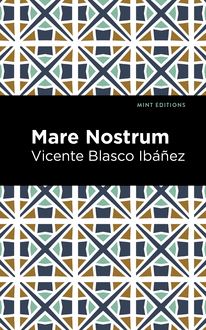-
 Univers
Univers
-
 Ebooks
Ebooks
-
 Livres audio
Livres audio
-
 Presse
Presse
-
 Podcasts
Podcasts
-
 BD
BD
-
 Documents
Documents
-
- Cours
- Révisions
- Ressources pédagogiques
- Sciences de l’éducation
- Manuels scolaires
- Langues
- Travaux de classe
- Annales de BEP
- Etudes supérieures
- Maternelle et primaire
- Fiches de lecture
- Orientation scolaire
- Méthodologie
- Corrigés de devoir
- Annales d’examens et concours
- Annales du bac
- Annales du brevet
- Rapports de stage
La lecture à portée de main
Vous pourrez modifier la taille du texte de cet ouvrage
Découvre YouScribe en t'inscrivant gratuitement
Je m'inscrisDécouvre YouScribe en t'inscrivant gratuitement
Je m'inscrisEn savoir plus
Vous pourrez modifier la taille du texte de cet ouvrage
En savoir plus

Description
A prosperous New Orleans family, led by Honoré Grandissime, is faced with a moral and financial dilemma that could threaten the livelihood of future generations. The old guard is confronted by new thinkers, opposing their way of life and actively seeking change.
Honoré Grandissime is the patriarch of a French Creole family consisting of a half-brother, who is mixed race, and an uncle who is white. When a young man named Joseph Frowenfeld visits the Grandissimes, his abolitionist views cause friction among the elders. The uncle sees slavery as a necessity that allows them to maintain a comfortable lifestyle. In the heightened political climate, this conflict forces personal relationships and alliances to come to ahead.
The Grandissimes: A Story of Creole Life gives an authentic look at the complex history of the American South. It highlights the insidiousness of the caste system and its impact on mixed-race families. The author details its destructive nature and lasting impact.
With an eye-catching new cover, and professionally typeset manuscript, this edition of The Grandissimes: A Story of Creole Life is both modern and readable.
Sujets
Informations
| Publié par | Mint Editions |
| Date de parution | 08 décembre 2020 |
| Nombre de lectures | 0 |
| EAN13 | 9781513273884 |
| Langue | English |
| Poids de l'ouvrage | 2 Mo |
Informations légales : prix de location à la page 0,0500€. Cette information est donnée uniquement à titre indicatif conformément à la législation en vigueur.
Extrait
The Grandissimes
A Story of Creole Life
George Washington Cable
The Grandissimes was first published in 1880.
This edition published by Mint Editions 2021.
ISBN 9781513268880 | E-ISBN 9781513273884
Published by Mint Editions®
minteditionbooks.com
Publishing Director: Jennifer Newens
Design & Production: Rachel Lopez Metzger
Typesetting: Westchester Publishing Services
C ONTENTS I. M ASKED B ATTERIES II. T HE F ATE OF THE I MMIGRANT III. “A ND W HO IS M Y N EIGHBOR ?” IV. F AMILY T REES V. A M AIDEN W HO W ILL N OT M ARRY VI. L OST O PPORTUNITIES VII. W AS IT H ONORÉ G RANDISSIME ? VIII. S IGNED —H ONORÉ G RANDISSIME IX. I LLUSTRATING THE T RACTIVE P OWER OF B ASIL X. “O O D AD IS , ’S IEUR F ROWENFEL ’?” XI. S UDDEN F LASHES OF L IGHT XII. T HE P HILOSOPHE XIII. A C ALL FROM THE R ENT -S PECTRE XIV. B EFORE S UNSET XV. R OLLED IN THE D UST XVI. S TARLIGHT IN THE R UE C HARTRES XVII. T HAT N IGHT XVIII. N EW L IGHT U PON D ARK P LACES XIX. A RT AND C OMMERCE XX. A V ERY N ATURAL M ISTAKE XXI. D OCTOR K EENE R ECOVERS H IS B ULLET XXII. W ARS WITHIN THE B REAST XXIII. F ROWENFELD K EEPS H IS A PPOINTMENT XXIV. F ROWENFELD M AKES AN A RGUMENT XXV. A URORA AS A H ISTORIAN XXVI. A R IDE AND A R ESCUE XXVII. T HE F ÊTE DE G RANDPÈRE XXVIII. T HE S TORY OF B RAS -C OUPÉ XXIX. T HE S TORY OF B RAS -C OUPÉ , CONTINUED XXX. P ARALYSIS XXXI. A NOTHER W OUND IN A N EW P LACE XXXII. I NTERRUPTED P RELIMINARIES XXXIII. U NKINDEST C UT OF A LL XXXIV. C LOTILDE AS A S URGEON XXXV. “F O ’ WAD YOU C RYNE ?” XXXVI. A URORA ’ S L AST P ICAYUNE XXXVII. H ONORÉ M AKES S OME C ONFESSIONS XXXVIII. T ESTS OF F RIENDSHIP XXXIX. L OUISIANA S TATES H ER W ANTS XL. F ROWENFELD F INDS S YLVESTRE XLI. T O C OME TO THE P OINT XLII. A N I NHERITANCE OF W RONG XLIII. T HE E AGLE V ISITS THE D OVES IN THEIR N EST XLIV. B AD FOR C HARLIE K EENE XLV. M ORE R EPARATION XLVI. T HE P IQUE - EN - TERRE L OSES O NE OF H ER C REW XLVII. T HE N EWS XLVIII. A N I NDIGNANT F AMILY AND A S MASHED S HOP XLIX. O VER THE N EW S TORE L. A P ROPOSAL OF M ARRIAGE LI. B USINESS C HANGES LII. L OVE L IES - A -B LEEDING LIII. F ROWENFELD AT THE G RANDISSIME M ANSION LIV. “C AULDRON B UBBLE ” LV. C AUGHT LVI. B LOOD FOR A B LOW LVII. V OUDOU C URED LVIII. D YING W ORDS LIX. W HERE S OME C REOLE M ONEY G OES LX. “A LL R IGHT ” LXI. “N O !”
I
M ASKED B ATTERIES
I t was in the Th é atre St. Philippe (they had laid a temporary floor over the parquette seats) in the city we now call New Orleans, in the month of September, and in the year 1803. Under the twinkle of numberless candles, and in a perfumed air thrilled with the wailing ecstasy of violins, the little Creole capital’s proudest and best were offering up the first cool night of the languidly departing summer to the divine Terpsichore. For summer there, bear in mind, is a loitering gossip, that only begins to talk of leaving when September rises to go. It was like hustling her out, it is true, to give a select bal masqué at such a very early—such an amusingly early date; but it was fitting that something should be done for the sick and the destitute; and why not this? Everybody knows the Lord loveth a cheerful giver.
And so, to repeat, it was in the Th é atre St. Philippe (the oldest, the first one), and, as may have been noticed, in the year in which the First Consul of France gave away Louisiana. Some might call it “sold.” Old Agricola Fusilier in the rumbling pomp of his natural voice—for he had an hour ago forgotten that he was in mask and domino—called it “gave away.” Not that he believed it had been done; for, look you, how could it be? The pretended treaty contained, for instance, no provision relative to the great family of Brahmin Mandarin Fusilier de Grandissime. It was evidently spurious.
Being bumped against, he moved a step or two aside, and was going on to denounce further the detestable rumor, when a masker—one of four who had just finished the contra-dance and were moving away in the column of promenaders—brought him smartly around with the salutation:
“ Comment to yé, Citoyen Agricola! ”
“H-you young kitten!” said the old man in a growling voice, and with the teased, half laugh of aged vanity as he bent a baffled scrutiny at the back-turned face of an ideal Indian Queen. It was not merely the tutoiement that struck him as saucy, but the further familiarity of using the slave dialect. His French was unprovincial.
“H-the cool rascal!” he added laughingly, and, only half to himself; “get into the garb of your true sex, sir, h-and I will guess who you are!”
But the Queen, in the same feigned voice as before, retorted:
“ Ah! mo piti fils, to pas connais to zancestres? Don’t you know your ancestors, my little son!”
“H-the g-hods preserve us!” said Agricola, with a pompous laugh muffled under his mask, “the queen of the Tchoupitoulas I proudly acknowledge, and my great-grandfather, Epaminondas Fusilier, lieutenant of dragoons under Bienville; but,”—he laid his hand upon his heart, and bowed to the other two figures, whose smaller stature betrayed the gentler sex—“pardon me, ladies, neither Monks nor Filles à la Cassette grow on our family tree.”
The four maskers at once turned their glance upon the old man in the domino; but if any retort was intended it gave way as the violins burst into an agony of laughter. The floor was immediately filled with waltzers and the four figures disappeared.
“I wonder,” murmured Agricola to himself, “if that Dragoon can possibly be Honor é Grandissime.”
Wherever those four maskers went there were cries of delight: “Ho, ho, ho! see there! here! there! a group of first colonists! One of Iberville’s Dragoons! don’t you remember great-great grandfather Fusilier’s portrait—the gilded casque and heron plumes? And that one behind in the fawn-skin leggings and shirt of birds’ skins is an Indian Queen. As sure as sure can be, they are intended for Epaminondas and his wife, Lufki-Humma!” All, of course, in Louisiana French.
“But why, then, does he not walk with her?”
“Why, because, Simplicity, both of them are men, while the little Monk on his arm is a lady, as you can see, and so is the masque that has the arm of the Indian Queen; look at their little hands.”
In another part of the room the four were greeted with, “Ha, ha, ha! well, that is magnificent! But see that Huguenotte Girl on the Indian Queen’s arm! Isn’t that fine! Ha, ha! she carries a little trunk. She is a Fille à la Cassette! ”
Two partners in a cotillion were speaking in an undertone, behind a fan.
“And you think you know who it is?” asked one.
“Know?” replied the other. “Do I know I have a head on my shoulders? If that Dragoon is not our cousin Honor é Grandissime—well—”
“Honor é in mask? he is too sober-sided to do such a thing.”
“I tell you it is he! Listen. Yesterday I heard Doctor Charlie Keene begging him to go, and telling him there were two ladies, strangers, newly arrived in the city, who would be there, and whom he wished him to meet. Depend upon it the Dragoon is Honor é , Lufki-Humma is Charlie Keene, and the Monk and the Huguenotte are those two ladies.”
But all this is an outside view; let us draw nearer and see what chance may discover to us behind those four masks.
An hour has passed by. The dance goes on; hearts are beating, wit is flashing, eyes encounter eyes with the leveled lances of their beams, merriment and joy and sudden bright surprises thrill the breast, voices are throwing off disguise, and beauty’s coy ear is bending with a venturesome docility; here love is baffled, there deceived, yonder takes prisoners and here surrenders. The very air seems to breathe, to sigh, to laugh, while the musicians, with disheveled locks, streaming brows and furious bows, strike, draw, drive, scatter from the anguished violins a never-ending rout of screaming harmonies. But the Monk and the Huguenotte are not on the floor. They are sitting where they have been left by their two companions, in one of the boxes of the theater, looking out upon the unwearied whirl and flash of gauze and light and color.
“Oh, chérie, chérie! ” murmured the little lady in the Monk’s disguise to her quieter companion, and speaking in the soft dialect of old Louisiana, “now you get a good idea of heaven!”
The Fille à la Cassette replied with a sudden turn of her masked face and a murmur of surprise and protest against this impiety. A low, merry laugh came out of the Monk’s cowl, and the Huguenotte let her form sink a little in her chair with a gentle sigh.
“Ah, for shame, tired!” softly laughed the other; then suddenly, with her eyes fixed across the room, she seized her companion’s hand and pressed it tightly. “Do you not see it?” she whispered eagerly, “just by the door—the casque with the heron feathers. Ah, Clotilde, I cannot believe he is one of those Grandissimes!”
“Well,” replied the Huguenotte, “Doctor Keene says he is not.”
Doctor Charlie Keene, speaking from under the disguise of the Indian Queen, had indeed so said; but the Recording Angel, whom we understand to be particular about those things, had immediately made a memorandum of it to the debit of Doctor Keene’s account.
“If I had believed that it was he,” continued the whisperer, “I would have turned about and left him in the midst of the contra-dance!”
Behind them sat unmasked a well-aged pair, “ bredouillé ,” as they used to say of the wall-flowers, with that look of blissful repose which marks the married and established Creole. The lady in monk’s attire turned about in her chair and leaned back to laugh with these. The passing maskers looked that way, with a certain instinct that there was beauty under those two costumes. As they did so, they saw the Fille à la Cassette join in this over-shoulder conversation. A moment later, they saw the old gentleman protector and the Fille à la Cassette rising to the dance. And when presently the dis
-
 Univers
Univers
-
 Ebooks
Ebooks
-
 Livres audio
Livres audio
-
 Presse
Presse
-
 Podcasts
Podcasts
-
 BD
BD
-
 Documents
Documents
-
Jeunesse
-
Littérature
-
Ressources professionnelles
-
Santé et bien-être
-
Savoirs
-
Education
-
Loisirs et hobbies
-
Art, musique et cinéma
-
Actualité et débat de société
-
Jeunesse
-
Littérature
-
Ressources professionnelles
-
Santé et bien-être
-
Savoirs
-
Education
-
Loisirs et hobbies
-
Art, musique et cinéma
-
Actualité et débat de société
-
Actualités
-
Lifestyle
-
Presse jeunesse
-
Presse professionnelle
-
Pratique
-
Presse sportive
-
Presse internationale
-
Culture & Médias
-
Action et Aventures
-
Science-fiction et Fantasy
-
Société
-
Jeunesse
-
Littérature
-
Ressources professionnelles
-
Santé et bien-être
-
Savoirs
-
Education
-
Loisirs et hobbies
-
Art, musique et cinéma
-
Actualité et débat de société
- Cours
- Révisions
- Ressources pédagogiques
- Sciences de l’éducation
- Manuels scolaires
- Langues
- Travaux de classe
- Annales de BEP
- Etudes supérieures
- Maternelle et primaire
- Fiches de lecture
- Orientation scolaire
- Méthodologie
- Corrigés de devoir
- Annales d’examens et concours
- Annales du bac
- Annales du brevet
- Rapports de stage



















